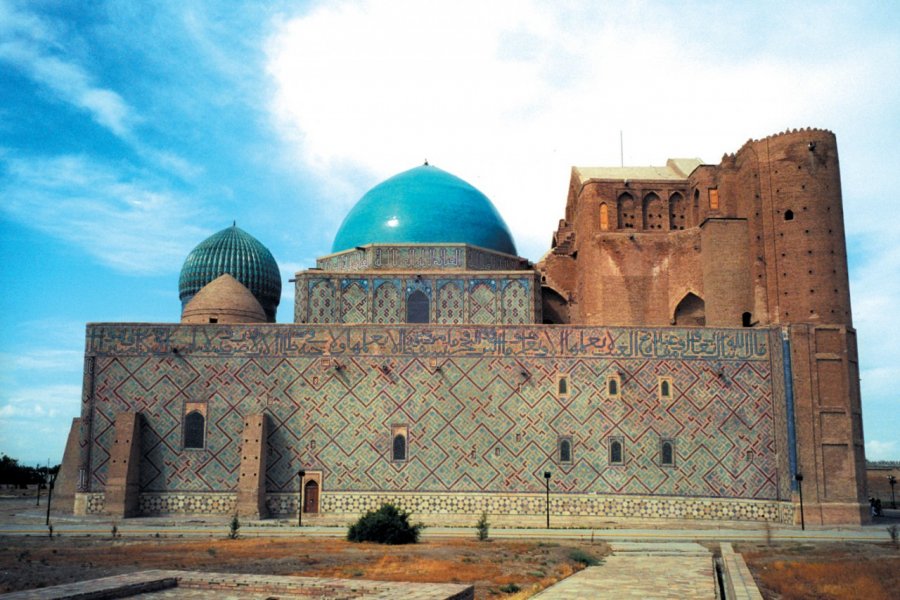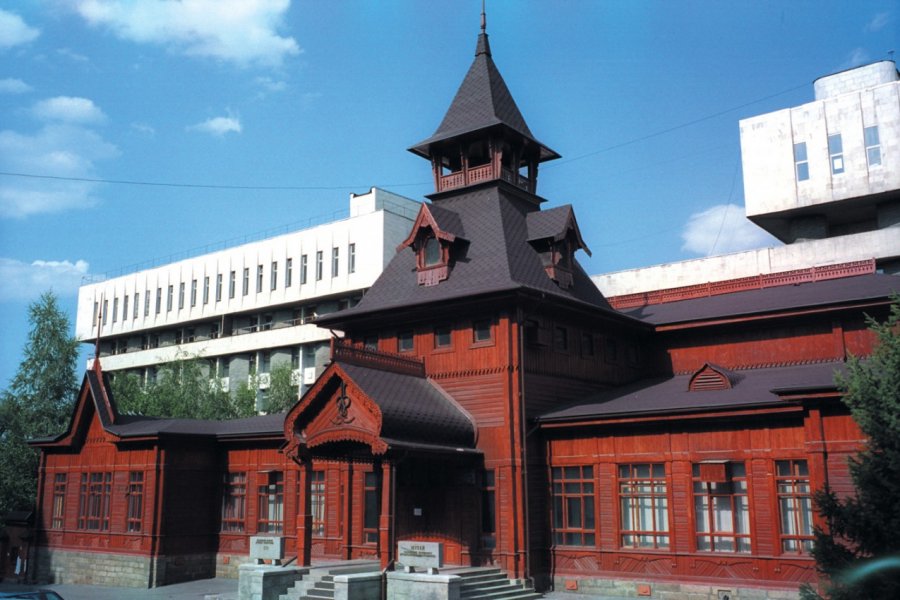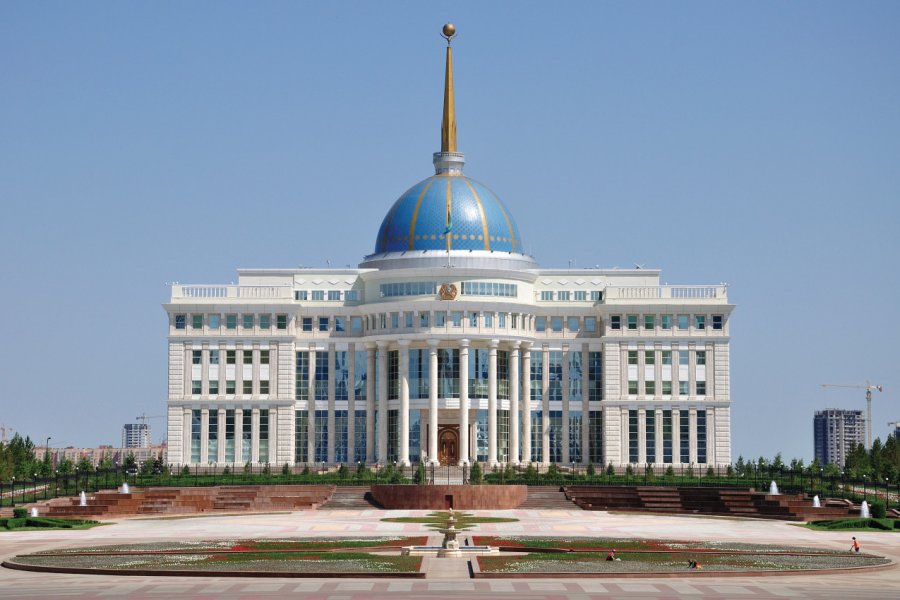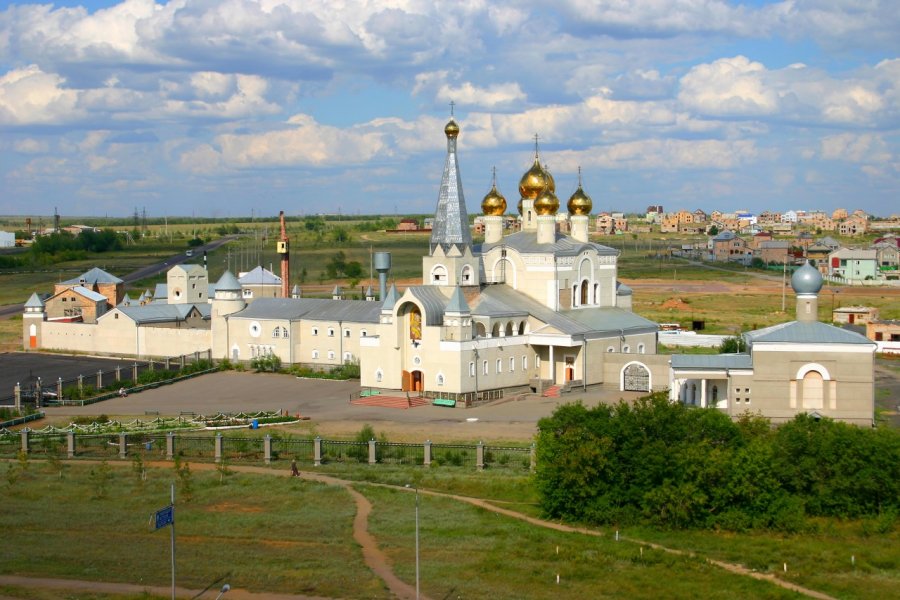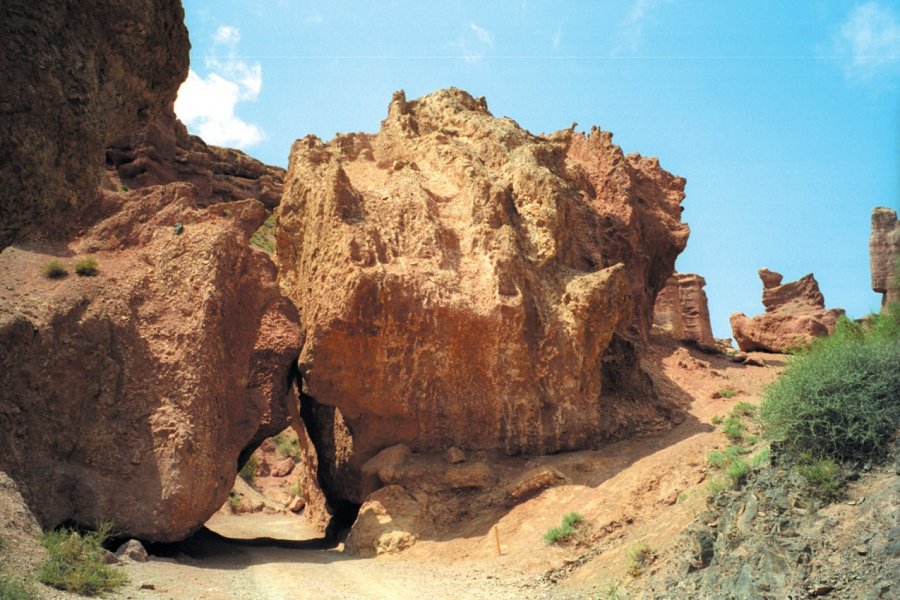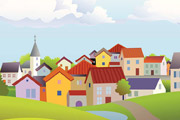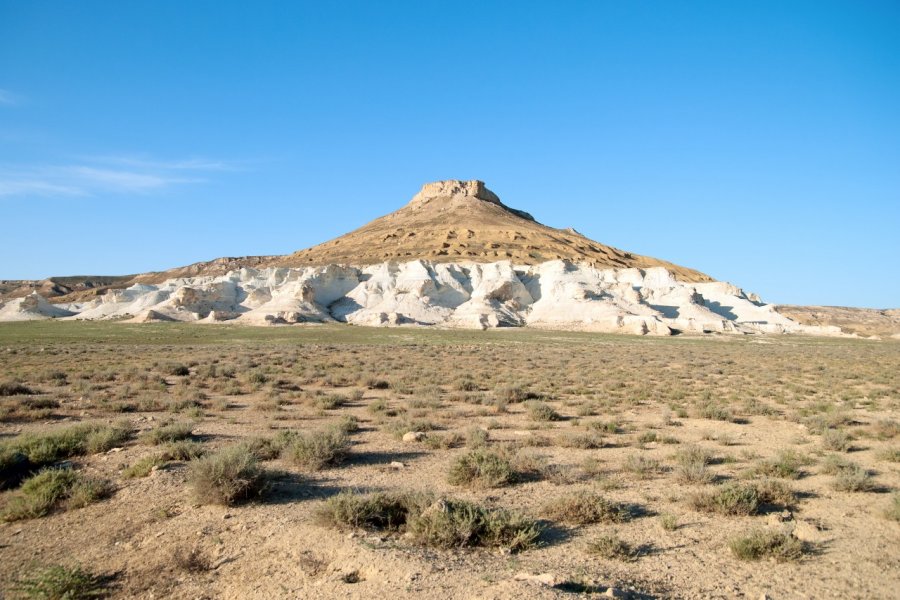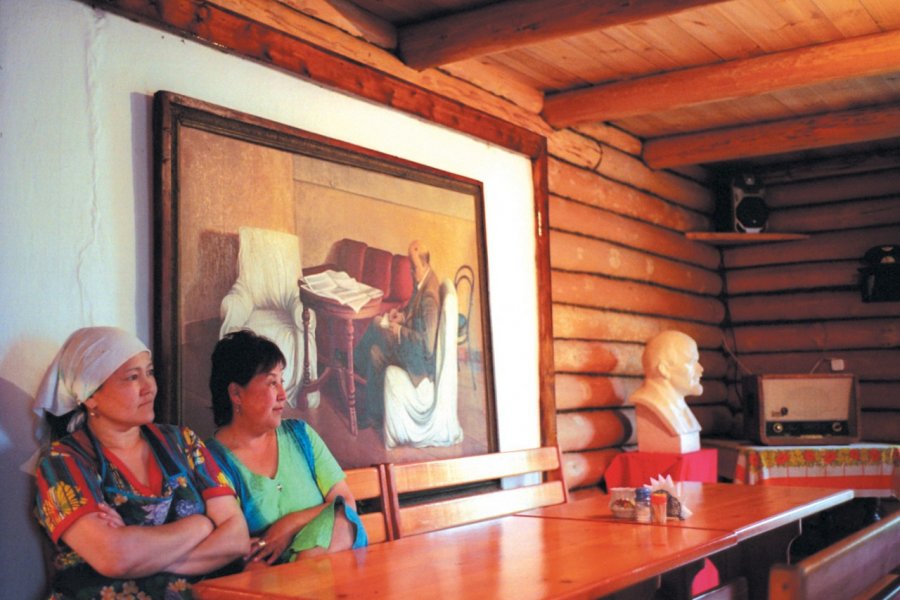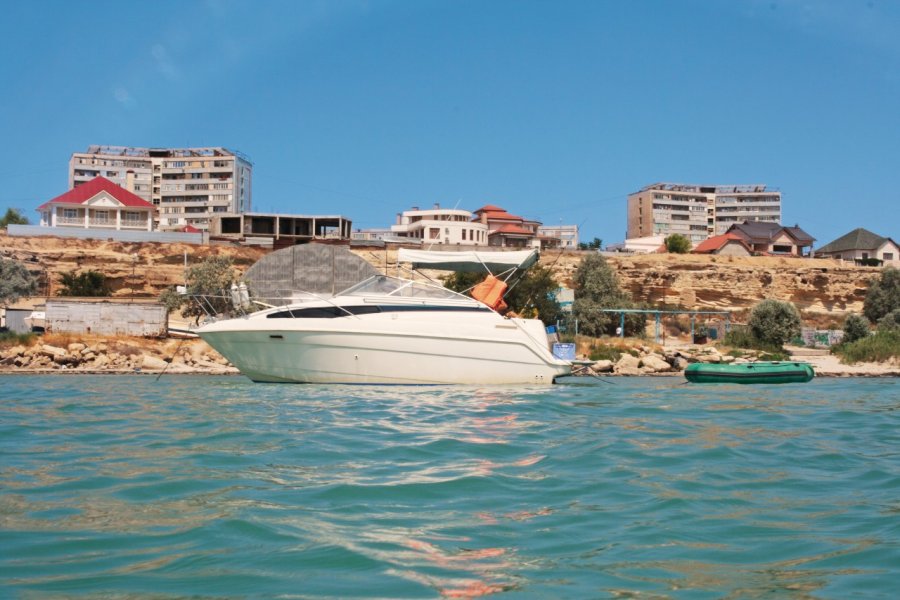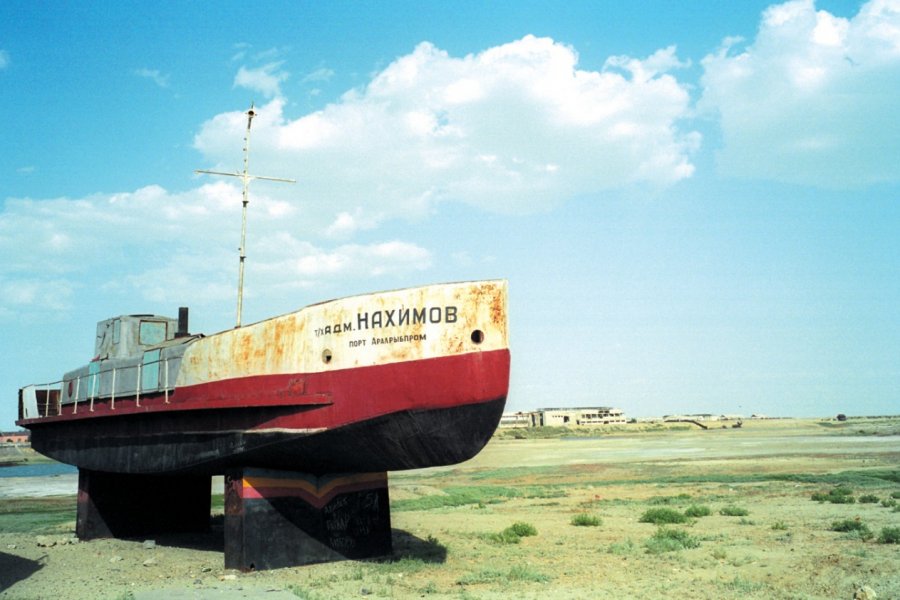What to see, what to do Kazakhstan?
The 10 good reasons to go Kazakhstan

On horseback
On the steppe or in the Altai Mountains, there's no shortage of opportunities for riding.

Travelling between two worlds
Make your way between Russians and Kazakhs, steppes and cities, nomads and sedentaries.

Off the beaten track
Wherever you go in Kazakhstan, you'll get off the beaten track!

Bathing in the Caspian Sea
The beautiful beaches around Aktau are well worth bringing along your swimsuit.

Steppe by steppe
More than 2 million km2 of steppe: this is the destination for you.

Archi fanatics!
Astana awaits you with buildings designed by some of the world's greatest architects.

Nightlife in Almaty
Bars, restaurants, clubs and a ski resort: Almaty lacks nothing!

Back in the USSR
Karaganda, Semipalatinsk, Aralsk or Baikonur will take you back in time.

Home stay
Curious and open-minded, Kazakhs don't take hospitality lightly!

A gastronomy to discover
From nomadic specialties to Russian recipes: the culinary difference is just as great!
What to visit Kazakhstan?
Good to know to visit Kazakhstan
 Timetable
Timetable
Shops and supermarkets are open 7 days a week, generally from 9am to 7 or 8pm. In case of emergency, there are many small outlets selling basic goods (water, cigarettes, alcohol, snacks...) that stay open late into the night. Bazaars open early in the morning. From 4pm onwards, activity drops off and some stalls begin to close. As a rule, all bazaars close on Mondays, the day of the big clean-up.
Public services (post office, banks, etc.) are open on weekdays (and on Saturdays for the post office) between 9am and 5.30pm, with a lunch break between 1pm and 2pm.
Museums and payingtourist sites are closed either on Sundays or Mondays. On other days, all museums and monuments are open from 9am to 5 or 6pm, depending on the season. Some take a lunch break between 1pm and 2pm.
 To be booked
To be booked
Kazakhstan is still well off the tourist map, and even if you improvise a last-minute trip, you'll have no trouble seeing everything that interests you without having to book anything in advance, with three exceptions:
The Kurchatov site, which can only be visited with special equipment due to radioactivity.
The Baikonur site, which requires special authorization from both Kazakhstan and Russia (currently impossible to visit).
The Altai Mountains area, where formalities are gradually easing, but special permits are still required if you plan to hike in the areas close to the Russian and Chinese borders.
 Budget & Tips
Budget & Tips
Reminiscent of practices dating back to the former USSR, Kazakhstan applies a double entrance fee to major monuments and museums, with tourists paying much more than locals. This is a common practice in Central Asia. Despite this, the cost of visits remains very affordable compared with France, but beware: you'll often have to pay a supplement to take photos (except with a smartphone), another to film, and yet another to take advantage of a guided tour or audio-guide.
 Main events
Main events
Kazakhstan doesn't particularly shine in terms of its cultural calendar, and the main dates for celebrations tend to be linked to the country's recent history (Independence Day, Constitution Day, Victory Day...). The biggest festive events take place around March 21 and Navruz, the Oriental New Year, which celebrates the renewal of nature and is marked by concerts, equestrian games, fireworks (in the capital), etc.
There arealso the Nomadic Games, in which the main Turkic-speaking nations take part: Kazakhstan, Azerbaijan, Uzbekistan, Turkmenistan, Turkey... The first three editions were held in Kyrgyzstan, but now each participating country hosts an edition in turn. In 2024, it will be Astana's turn in Kazakhstan. For further information, visit worldnomadgames.kz.
 Guided tours
Guided tours
They may prove useful in some of the capital's major museums, where English or French translations are not always complete or detailed. In the regions, local guides will certainly help you to better read the landscapes, whether in the Altai Mountains or on the parched floor of the ancient Aral Sea. A good knowledge of the terrain often helps you decipher what you discover.
Last but not least, guided tours are compulsory at some of the country's sites, such as Kurchatov (nuclear test control center), the Baikonur cosmodrome and the Karaganda gulag.
 Smokers
Smokers
Smoking is forbidden in public places, but there are smoking areas in all stations, airports and many restaurants. In hotels, ask for a smoking room or one with a balcony if you absolutely must have a smoke.
In Almaty and Astana, most American brands are manufactured in Turkey. Within the country, local brands are more common. Cigarette pack prices are much lower than in Europe, and you can buy single cigarettes from street vendors.
 Tourist traps
Tourist traps
There aren't really any reprehensible practices on Kazakh tourist sites, even if the application of double rates immediately gives the impression of being taken for a ride. But occasionally, in museums, if you've paid extra for an English- or French-speaking guide (rarer), you may find yourself rather disappointed by the guide's level of language or general culture. No scams to be found there either, just a lack of professional schools and levels of education not necessarily equivalent to what we're used to finding in France. Patience and tolerance will often enable you to make up for the lack of information with a great encounter and a moment of sharing.
 What's very local
What's very local
You'll quickly notice that almost every museum ends with a room dedicated to independent Kazakhstan, and often to the glory of President Nazarbaev. Don't mock or engage in political debate, even if your guide seems to be trying to be critical. You run the risk of making him very uncomfortable for no one's benefit. Similarly, avoid political topics, whether in public or in private, if you haven't been specifically invited.
